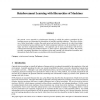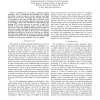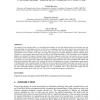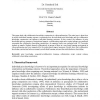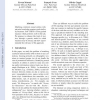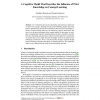NIPS
1997
15 years 3 months ago
1997
We present a new approach to reinforcement learning in which the policies considered by the learning process are constrained by hierarchies of partially specified machines. This ...
112
click to vote
ICMLA
2003
15 years 3 months ago
2003
— Fundamental to the problem of lifelong machine learning is how to consolidate the knowledge of a learned task within a long-term memory structure (domain knowledge) without the...
125
click to vote
IADIS
2004
15 years 3 months ago
2004
The purpose of our ongoing efforts is to investigate the influence of web page design based on text-structure and user prior knowledge for information retrieval on the basis of na...
97
Voted
AAAI
2006
15 years 3 months ago
2006
The scarcity of manually labeled data for supervised machine learning methods presents a significant limitation on their ability to acquire knowledge. The use of kernels in Suppor...
104
Voted
SOCRATES
2008
15 years 3 months ago
2008
This paper deals with collaborative knowledge construction in videoconferencing. The main issue is about how to predict individual learning outcome, in particular how far individu...
154
click to vote
NIPS
2008
15 years 3 months ago
2008
For many supervised learning problems, we possess prior knowledge about which features yield similar information about the target variable. In predicting the topic of a document, ...
64
Voted
COLING
2008
15 years 3 months ago
2008
Matching coreferent named entities without prior knowledge requires good similarity measures. Soft-TFIDF is a fine-grained measure which performs well in this task. We propose to ...
BILDMED
2008
15 years 3 months ago
2008
Deformable models are used for the segmentation of objects in 3D images by adapting flexible meshes to image structures. The simultaneous segmentation of multiple objects often cau...
104
click to vote
ACL
2007
15 years 3 months ago
2007
We present a general framework to incorporate prior knowledge such as heuristics or linguistic features in statistical generative word alignment models. Prior knowledge plays a ro...
122
click to vote
ICANN
2007
Springer
15 years 6 months ago
2007
Springer
It is well known that our prior knowledge and experiences affect how we learn new concepts. Although several formal modeling attempts have been made to quantitatively describe the ...
